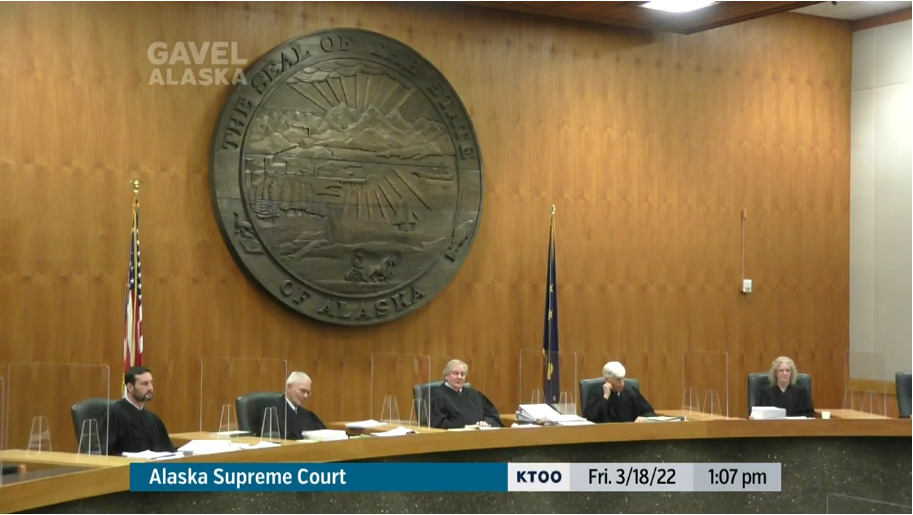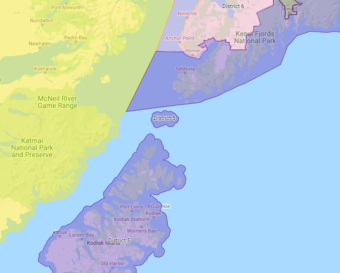
The Alaska Supreme Court will decide in the next two weeks how much weight public testimony and the boundaries of Alaska Native regional corporations should be given in shaping legislative districts.
The court heard arguments Friday about these and other issues raised in appeals of a Superior Court judge’s ruling on maps for the state House of Representatives and Senate.
The Redistricting Board appealed whether Judge Thomas Matthews was wrong to reject the board’s decision to pair most of Eagle River with the South Muldoon neighborhood in a Senate district. In public testimony, South Muldoon residents had asked to be paired with the North Muldoon House district rather than Eagle River.
Lawyer Holly Wells argued against the board’s position. She said the board violated the constitution by failing to take a hard look at public testimony.
Chief Justice Daniel Winfree questioned Wells:
“So you’re meaning of ‘taking a hard look at it’ means they have to agree with it?”
Wells said they didn’t, prompting Winfree to ask for evidence that suggests the board didn’t think about public testimony.
Wells replied: “Silence. There’s silence to suggest that.”
The issue of public testimony came up in another board appeal of Matthews’ ruling, over whether the board gave enough weight to the testimony of Skagway residents. The residents had asked to be in the same House district as downtown Juneau, but the board map included Skagway in the district of Juneau’s Mendenhall Valley neighborhood.
Board lawyer Matthew Singer said the board didn’t have to do what most people who gave testimony wanted. He compared it to how other government decisions are made.
“We hold an election under our constitution and we give everybody an equal right to vote,” he said. “We don’t conduct straw polls of public testimony and then make public policy based on straw polls.”
Another appeal was made by the city of Valdez. In its case, Matthews upheld a House district drawn by the board that included both Valdez and part of the Matanuska-Susitna Borough.
Robin Brena is the lawyer for Valdez. He says the city is too far away from Mat-Su.
“If you go out of your door and drive for 100 miles, you ought to go past a few folks that you’re districted with,” he said. “Call me old school.”
Brena also argued that the board gave too much weight to the regional corporation boundaries drawn under the Alaska Native Claims Settlement Act, or ANCSA.
The regional corporation Calista supported the board’s position in Valdez’s appeal. Calista lawyer Eva Gardner said the court should give weight to these boundaries. She said Alaska Natives have not been considered by the state government in the past. She pointed to the large state seal above the justices.
“Sitting here today, listening … I couldn’t help but notice the seal on the wall behind you,” she said. “And, really, I encourage you to look at it and pay attention to what it doesn’t include.
“There’s no hint of Alaska’s Native people in that seal. And that’s not right. The Calista parties ask today that your decision doesn’t allow the redistricting process to similarly ignore and exclude the ANCSA regions’ importance to the state of Alaska and give fair representation to those regions and their people.”
The court has until April 1 to rule on the appeals.

